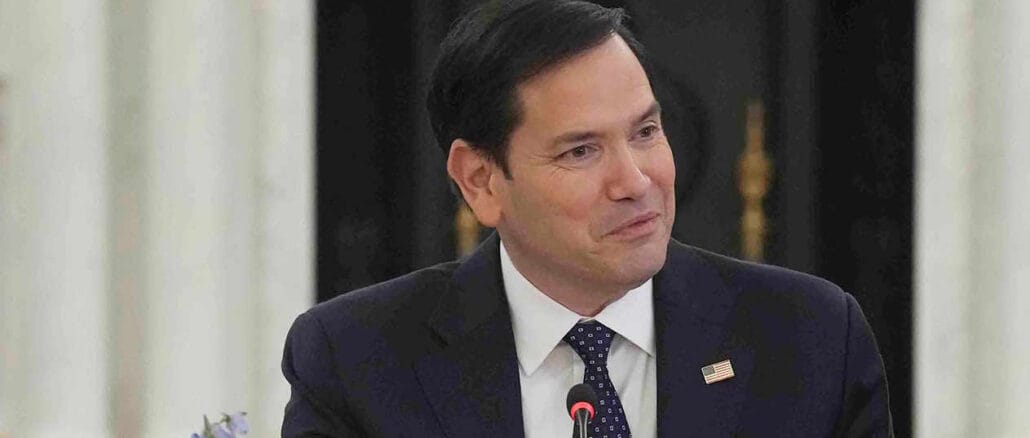
US Secretary of State Marco Rubio has suggested that Washington may offer substantial bounties for top Taliban leaders amid reports that the group is allegedly holding more American hostages than previously disclosed.
In a January 25 post on X (formerly Twitter), Rubio stated, “Just hearing the Taliban is holding more American hostages than has been reported. If this is true, we will have to immediately place a VERY BIG bounty on their top leaders, maybe even bigger than the one we had on Bin Laden.”
Rubio did not provide further details or specify how many Americans are reportedly being held hostage. The Taliban have not yet responded to his remarks.
This statement comes days after the Taliban announced a prisoner exchange with the United States. On January 21, Afghanistan’s Taliban-led Ministry of Foreign Affairs confirmed the release of several American nationals but withheld their identities. In exchange, the US released Khan Mohammad, an Afghan who had been imprisoned in the United States for over 20 years.
Reports by The New York Times and CNN suggest that the Taliban freed Ryan Corbett and William McKenty, who were allegedly detained in 2022.
Previously, the US government confirmed that George Gleizman and Mahmood Shah Habibi, a dual Afghan-American national and former head of Afghanistan’s Civil Aviation Authority, were also in Taliban custody. However, the Taliban have not officially acknowledged holding Habibi.
Rubio’s remarks coincided with developments at the International Criminal Court (ICC), where Prosecutor Karim Khan called for arrest warrants against Taliban Supreme Leader Haibatullah Akhundzada and Chief Justice Abdul Hakim Haqqani. In a January 23 statement, Khan accused the two leaders of crimes against humanity, specifically gender-based persecution.
The ICC judges are currently deliberating on whether to issue the warrants. The Taliban, however, dismissed the accusations as “baseless” in a statement issued shortly after Khan’s remarks.
Since taking power on August 15, 2021, the Taliban have enforced increasingly restrictive policies on women and girls, including banning education beyond sixth grade. In December 2022, they extended this prohibition to universities, drawing widespread international condemnation. Most recently, in December 2024, they barred female students from attending medical institutes, further intensifying criticism from global rights groups.
Global Conference in Islamabad Reaffirms Right to Girls’ Education in Muslim Communities
Human rights organizations and activists have described the Taliban’s policies as “gender apartheid“. The Taliban, however, claim they are working on creating a “suitable environment” for female education. To date, they have not outlined any concrete progress or provided a timeline, leaving Afghan girls and women facing an uncertain future.






Be the first to comment